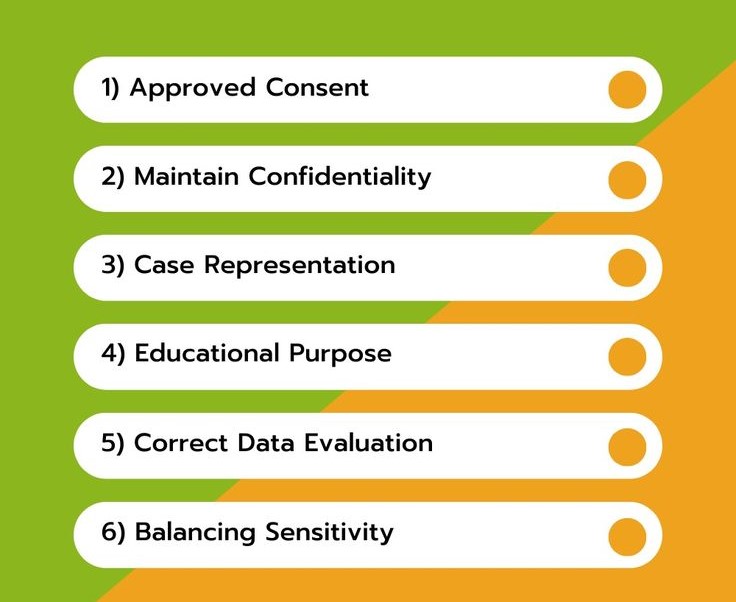Mental health nursing is a complex and multifaceted field, demanding a deep understanding of human behavior, psychological processes, and the intricate interplay of biological, social, and environmental factors. A case study on mental health nursing serves as a powerful tool for both learning and teaching in this field, allowing students, clinicians, and researchers to delve into the intricacies of patient experiences, therapeutic interventions, and the ethical considerations that shape mental health care.
This comprehensive guide will explore the process of crafting a compelling case study on mental health nursing, providing a framework for capturing the nuances of patient care and presenting a clear, insightful, and ethically sound narrative.
Defining the Scope of Your Case Study on Mental Health Nursing
The first step in crafting a successful case study on mental health nursing involves defining its scope. Ask yourself:
- What is the central focus of your study? Are you examining a specific mental health condition, a particular therapeutic approach, or the impact of a social determinant on patient outcomes?
- Who is the patient? Is it an individual, a family, or a group? What are their unique experiences and challenges?
- What is the setting? Is this a case study of care provided in a hospital, community clinic, or private practice? How does the setting influence the patient’s experience and the nurse’s interventions?
Identifying and Selecting a Suitable Case Study
The selection of a case study is crucial. Here are some guiding principles:
- Patient consent: Always obtain informed consent from the patient or their legal representative before involving them in a case study. Ensure confidentiality and anonymity are maintained.
- Relevance to your learning objectives: Choose a case that aligns with the specific skills, knowledge, and concepts you aim to explore.
- Diversity and representation: Strive to choose cases that reflect the diverse populations served by mental health nurses, including individuals with different cultural backgrounds, socioeconomic statuses, and identities.
Gathering Data for Your Case Study on Mental Health

The data you gather will form the foundation of your case study. Consider these sources:
- Patient interviews: Conduct one or more interviews with the patient to gain insight into their experiences, symptoms, and perspectives on their care.
- Clinical records: Review the patient’s medical chart, including their psychiatric history, diagnoses, medications, treatment plans, and progress notes.
- Observations: Observe the patient’s behavior, communication style, and interactions with others to gain a more holistic understanding of their functioning.
- Literature review: Consult research articles, textbooks, and other relevant resources to provide context and theoretical grounding for your case study.
Structuring Your Case Study
The structure of your case study should be clear, logical, and reader-friendly. Consider these essential components:
- Introduction: Provide a brief overview of the case study, including the patient’s background, presenting problem, and the goals of the study.
- Patient profile: Present a detailed description of the patient, including their demographics, medical history, psychiatric history, and current mental health status.
- Clinical presentation: Describe the patient’s symptoms, behaviors, and the challenges they face.
- Nursing interventions: Detail the nursing interventions implemented, including assessments, medications, therapeutic approaches, and communication strategies.
- Outcomes: Discuss the patient’s response to treatment, including any changes in symptoms, behaviors, or functioning.
- Discussion: Analyze the case study, drawing connections between the patient’s experiences, the nursing interventions, and the outcomes. Explore the ethical considerations, challenges, and limitations of the case.
- Conclusion: Summarize the key findings of the case study, highlighting its implications for clinical practice, education, and future research.
Writing the Case Study
The writing style should be clear, concise, and engaging. Consider these tips:
- Use a professional and objective tone: Avoid personal opinions or biases. Focus on presenting the facts and evidence.
- Use accurate and specific language: Avoid jargon or technical terms that may be unfamiliar to your readers.
- Be sensitive to patient privacy: Protect the patient’s identity by using pseudonyms and avoiding any identifying details that could compromise their confidentiality.
- Structure your writing logically: Use headings, subheadings, and paragraphs to organize the information effectively.
- Provide evidence to support your claims: Include relevant data, quotes, and observations to substantiate your statements.
Ethical Considerations in Case Studies on Mental Health Nursing
Ethical considerations are paramount in conducting and presenting case studies on mental health nursing.

- Informed consent: Obtain informed consent from the patient or their legal representative before involving them in the case study. Ensure they understand the purpose, procedures, risks, and benefits of participating.
- Confidentiality: Maintain the patient’s confidentiality by using pseudonyms and avoiding any identifying details that could compromise their privacy.
- Beneficence and non-maleficence: Ensure that the case study is conducted in a way that benefits the patient and does not cause harm.
- Objectivity: Present the case study in an objective manner, avoiding personal opinions or biases. Focus on providing a balanced and accurate account of the patient’s experiences and the nursing interventions.
Examples of Engaging Topics for Mental Health Nursing Case Studies
Here are some examples of topics that could be explored in case studies on mental health nursing:
- A case study on mental health nursing: Exploring the effectiveness of Cognitive Behavioral Therapy (CBT) for anxiety disorders in adolescents.
- A case study on mental health nursing: Examining the impact of trauma-informed care on the treatment of post-traumatic stress disorder (PTSD) in veterans.
- A case study on mental health nursing: Analyzing the role of social support in the recovery of individuals with schizophrenia.
- A case study on mental health nursing: Investigating the use of mindfulness-based interventions to manage stress and improve well-being in caregivers of individuals with dementia.
- A case study on mental health nursing: Evaluating the effectiveness of medication management in the treatment of bipolar disorder.
- A case study on mental health nursing: Exploring the challenges of working with patients who have substance use disorders.
- A case study on mental health nursing: Analyzing the impact of cultural factors on mental health care.
- A case study on mental health nursing: Investigating the ethical considerations of involuntary treatment for individuals with mental illness.
Benefits of Writing Case Studies on Mental Health Nursing
Writing case studies on mental health nursing offers numerous benefits for students, clinicians, and researchers:
- Deepen understanding of mental health concepts: By immersing yourself in a patient’s story, you gain a more profound understanding of mental health conditions, therapeutic interventions, and the complexities of human behavior.
- Develop clinical skills: Writing case studies helps you develop critical thinking, problem-solving, and communication skills essential for effective mental health nursing practice.
- Promote ethical reflection: Case studies encourage you to consider ethical dilemmas, professional boundaries, and the impact of your decisions on patients.
- Contribute to knowledge: Well-written case studies can add to the body of knowledge in mental health nursing, sharing valuable insights and lessons learned.
- Enhance teaching and learning: Case studies can be used as effective teaching tools, fostering student engagement, critical thinking, and discussion.
Tips for Writing a Compelling Mental Health Case Study
To make your case study on mental health nursing truly compelling, consider these tips:
- Focus on the patient’s narrative: Let the patient’s story guide the narrative, allowing their experiences and perspectives to shine through.
- Use vivid language: Descriptive language can help bring the patient’s story to life, making it more engaging and relatable for readers.
- Emphasize the human aspect: Remember that mental illness affects individuals, families, and communities. Focus on the patient’s humanity and the impact of their illness on their life.
- Draw connections between theory and practice: Relate the case study to relevant theories, concepts, and research findings, providing a deeper understanding of the patient’s experiences and the interventions implemented.
- Highlight the role of the nurse: Emphasize the nurse’s role in providing compassionate, evidence-based care, and discuss the challenges and rewards of working in mental health.
- Use visuals: Images, diagrams, or charts can help illustrate complex concepts, enhance visual appeal, and improve reader comprehension.
- Consider the audience: Tailor your writing style and content to the intended audience, whether it’s students, colleagues, or researchers.

Crafting a compelling case study on mental health nursing involves meticulous planning, insightful data collection, and a clear, engaging writing style. By following the guidelines outlined in this guide, you can create a case study that:
- Provides a detailed and nuanced account of the patient’s experience.
- Explores the complexities of mental health care and the role of the mental health nurse.
- Fosters critical thinking, ethical reflection, and professional development.
- Contributes to the body of knowledge in mental health nursing.
Remember, every case study on mental health nursing has the potential to shed light on the human experience of mental illness, the power of therapeutic interventions, and the importance of compassionate and evidence-based care. By embracing the opportunity to learn and share through case study writing, you contribute to the advancement of the mental health nursing profession and enhance the quality of care for patients in need.
Get Help with Writing a Case Study on Mental Health Nursing
Are you struggling with writing a case study on mental health nursing? Then, engage Exemplary Dissertations for the best help with nursing case study writing. We offer customized nursing case study writing service for undergraduate, Degree, Master’s and Doctoral levels. Besides case studies, we can also help you with writing original nursing research papers, essays and dissertations.

